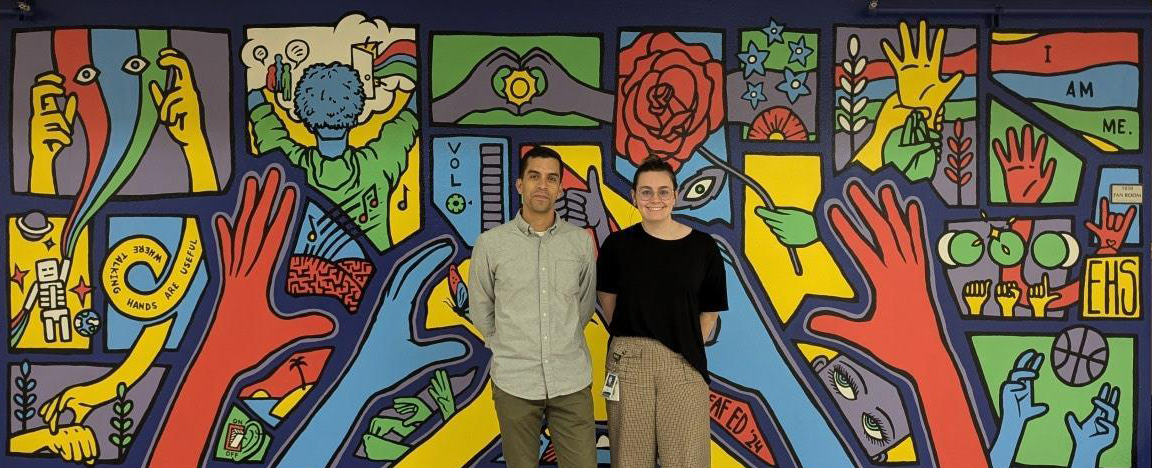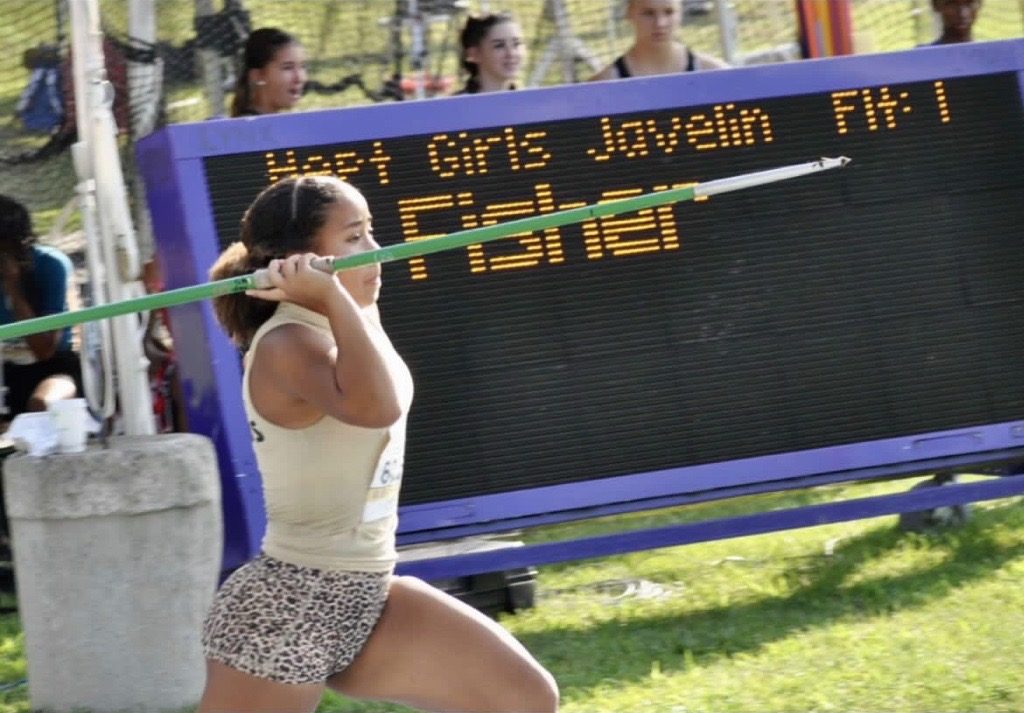Eight students at East High School are deaf or hard of hearing. Some students need assistance in their classes through a translator, these are East’s American Sign Language interpreters. These translators do not usually speak for themselves when you see them, but it’s important to know the people behind the signs.
East has had a deaf education program for many years, and they have a lot of pre-established signs for school specific things such as ‘Infinite Campus’. Ken Padilla and Lexi Chiodo are two of East’s ASL interpreters, both have different pathways on how they arrived at East.
Chiodo is the newest interpreter having graduated last August. She started community interpreting in Iowa, then switched to interpreting for schools.
The reason Chiodo chose to become an interpreter was because she was struggling in classes and shadowed her cousin who was an interpreter to open her eyes to more options, causing her to learn interpreting. She furthered her studies by going to Kentucky. When she was learning interpreting people in the community caused her to feel bad about what she was doing, as well as feeling like her skill was not improving.
“Don’t accept everything you hear, don’t let that keep you defeated, the encouragement really helped,” Chiodo said.
Chiodo applied to work in education because she did not feel as important in community interpreting. Chiodo’s mother had a friend who encouraged Chiodo to continue interpreting. Joining the education team was great for Chiodo because the whole team is supportive.
Padilla decided to learn ASL after interacting with a deaf man in college, he felt bad being unable to communicate so he took classes to learn. He didn’t think he would enjoy being in the educational field, but he loved being within the deaf community and saw how it would help with pressing forward for advocacy and accessibility. He loves people and he felt committed to his goal of accessibility. Education helped him find his passion, “Helping young people achieve their dreams,” Padilla said. The whole interpreter team loves their jobs. “Being passionate about people is very important, we’re lucky to be on a team and have strong supports for us,” Padilla said. Chiodo described her perspective as an interpreter for students and staff at East as, “…Feel more of a third person perspective,” Chiodo said. Padilla wished people knew more ASL to open the community more. “I wish more students knew ASL because language is access, more awareness of [deaf] culture,” Padilla said. If more students knew the language, deaf ED students wouldn’t be as isolated. “Our goal is to be that smooth communication bridge, it could be hard for a student to feel like themselves, [without independent communication],” Padilla said.
If you’re interested in interpretation, the whole deaf education program is willing to talk about their experience.
“We all had different paths and everyone on the team has different roadblocks we experienced,” Chiodo said.






